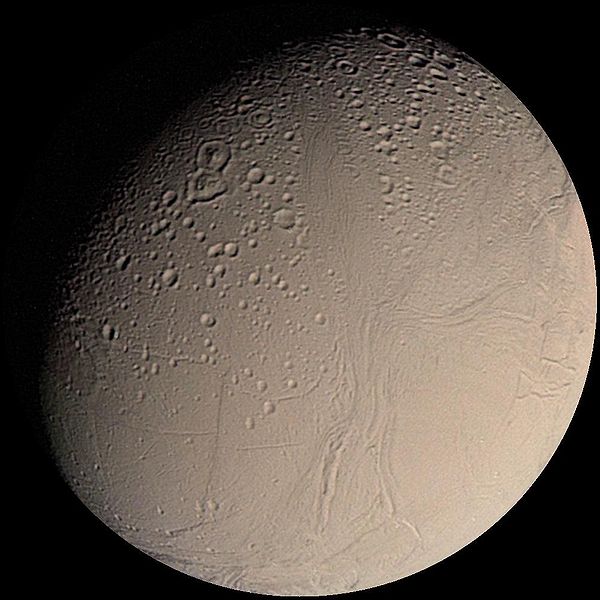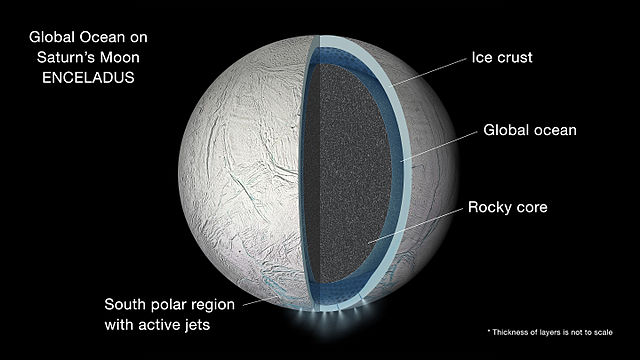Enceladus Life Finder (ELF) is a proposed astrobiology mission concept for a NASA spacecraft intended to assess the habitability of the internal aquatic ocean of Enceladus, which is Saturn's sixth-largest moon of at least 146 total moons, and seemingly similar in chemical makeup to comets. The spaceprobe would orbit Saturn and fly through Enceladus's geyser-like plumes multiple times. It would be powered by energy supplied from solar panels on the spacecraft.
Voyager 2 view of Enceladus in 1981: Samarkand Sulci vertical grooves (lower center); Ali Baba and Aladdin craters (upper left)
Artist's impression of possible hydrothermal activity on Enceladus.
Astrobiology is a scientific field within the life and environmental sciences that studies the origins, early evolution, distribution, and future of life in the universe by investigating its deterministic conditions and contingent events. As a discipline, astrobiology is founded on the premise that life may exist beyond Earth.
The interior of Europa
Asteroid(s) may have transported life to Earth.
Artist's impression of the extrasolar planet OGLE-2005-BLG-390Lb orbiting its star 20,000 light-years from Earth; this planet was discovered with gravitational microlensing.
The NASA Kepler mission, launched in March 2009, searches for extrasolar planets.






